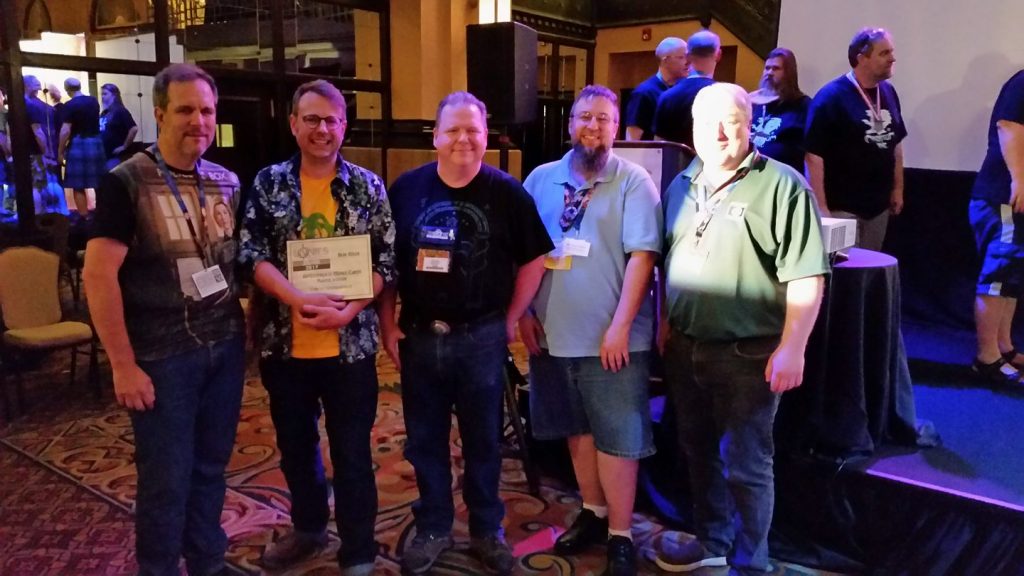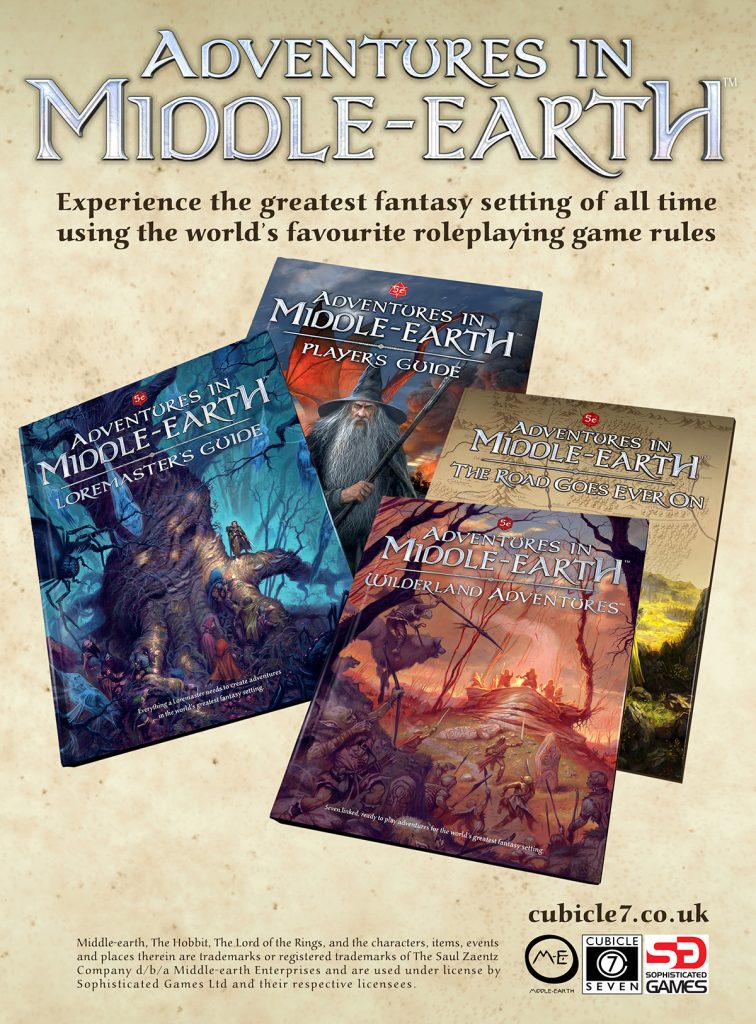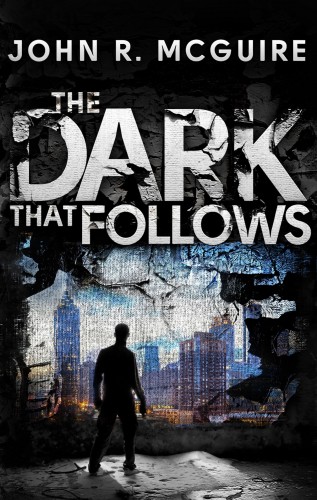
A disgraced former cop who possesses the ability to see the future…
A college student whose life has become entangled in black magic…
A girlfriend who is no longer sure who to trust…
And a vision of the future which shows only the darkness of the void…
The only difference between Jason Mills and every other Fortune Teller in town is that when he tells people about their futures he doesn’t need to make anything up. With a touch, his mind is flooded with visions of what may come. Am I going to fall in love… am I going to be rich… am I going to get that promotion… Until the reading that shows him only a void, as if the future has been wiped clean for one person.
As all futures begin to unravel, Jason begins to realize that the young man who began this prediction may be more involved in this Dark outcome than he could imagine.
That his ability is as much a gift as it is a curse.
His gift of future sight had put him on the radar of some very powerful beings.
Drawn into a web of secret societies, Black Masses, and beings of immense power, Jason races to determine the truth behind his visions in order to save his own future from being wiped out.
Please enjoy the following preview chapter of
THE DARK THAT FOLLOWS
CHAPTER ONE
Office building. Elevator. Sam from accounts payable. Sip of water. Far office. Jim the terrible boss. New office. Handsome guy. Blush. Smile. Sandwich. Phone call. Tears. Screaming.
Marilyn.
“Are you sure that this isn’t going to hurt?”
Her words snapped him from the trance. Jason Mills watched as the woman fidgeted in the seat across the table. With one of her hands now freed from his, she maintained limited contact with the other.
“Just breathe deep and relax. You came to me, but we aren’t going to get anywhere if you continue to be this nervous.”
“It’s just that, well… I’m beginning to rethink coming here.”
He smiled at her. It was the same disarming smile he’d given to hundreds of other skittish customers who’d come to him. Whatever it took to make sure she remained a paying customer. He reached out with his free hand and coaxed her to regain the connection.
“Release your thoughts and let your mind wander.
“There… that’s it.”
Jason Mills gripped the older woman’s hand tighter while her potential life revealed itself. The sync between the two complete, he began to search out anything within the immediate future.
Through her eyes he glimpsed a corner office overlooking the weeds of cubicles. The man inside smiles while pointing at the nameplate on the desk: Ellen Small.
The words flowed from Jason.
“This is the year when all your hard work starts to pay off. You’ve been biding your time over the last few years. Something you have managed to earn and not just ease yourself into.”
A gasp escaped his charge’s lips. Spurred on by this first fortune, her grip strengthened to match his.
Another day and different images flowed through his mind. Ellen sat alone in a deli, her attention divided between an e-reader on the table, a partially eaten sandwich, and the attractive gentleman sitting three tables over. Jason caught the briefest glance; all she would allow herself to experience.
“New people and new possibilities go hand in hand. You should shed your shyness. Push beyond the nagging voice inside you which urges restraint, and instead open up to new experiences and new people.”
Another shift and another hand squeeze.
Jason delved one more time into her future. Somewhere her cell phone rang, the name on the other end read Marilyn, and Ellen placed it to her ear. Her world spun and twisted. Her words blurred and mixed with anguish. The phone slipped from her hand to the ground, and she slid to the floor after it.
Jason dropped the link and released her hands. Ellen sat before him, eyes wide and leaning forward in her seat.
Jason eased back in the chair. He ran sweaty palms through slicked back hair, the perspiration and the hair gel mixing to produce sticky goo. He let out a deep breath.
“You should take the opportunity to get in contact with your friends and family. They miss you greatly and will counsel you on your most difficult decisions.”
Ellen cocked her head to one side and nodded, whether to him or to herself, Jason wasn’t sure. Either way, he hated this part. Better to have good news… or at least, not bad news to give his clients. It made for poor repeat business. No one wanted to come back to a fortune teller who gave them upsetting futures. Repeat customers were the one thing that allowed him to pay rent.
Terrible news also made his heart ache for them. So, most of the time, he tried to make it vague enough so the person might leave perplexed, a fine alternative to the other thing.
“Someone named… Marilyn… I saw that she might be of great counsel to you in the upcoming days.”
Ellen’s jaw opened in disbelief. Everything else could be explained away. Up until that point, Jason’s talk of true insight into the future appeared just vague enough. Much like the magician who performs his tricks on stage to a captive audience, no one wants to know how the trick is done, because then it is ruined for them for all time. Better to allow themselves to think it real, but know that it is not.
Instead, with one name, he managed to shatter her image of not only him and what it is he’s told her, but the idea that it could be real settled inside her head… a scary proposition for most everyone.
“How? I haven’t…”
“I can’t predict what I am going to see within the vision, but what I have said can push you into the right direction. It is you who has to take control of your life and make the choices. Understand?”
A slow nod greeted him behind which he could see the struggle within her mind. She rose from her seat still bewitched from his words. A slight dazed look lay frozen across her face.
The sign of a possible repeat customer.
*
Jason Mills had come to realize, in the last three years, the important thing was to live up to the customer’s expectations. No one wanted their fortune read by some guy in a t-shirt and jeans. People wanted theatrics, a story for their friends so they might debate the merits of whether the guy who had done her reading was for real or a fraud. Even then, they do not mind the apparent lies as long as they had a good time. It was something he had struggled with understanding when he first started out. All the bullshit items they gave credence to allowed them to have a connection. So for that reason he dressed the chamber up to match those preconceptions. Something an ordinary person would want to see and experience.
The corner lamp’s light filtered through a purple shade framing the small table. Centered within the pattern sat a crystal ball. The curtains, which surrounded the area, were a royal red. Every piece needed to convey that he was worth giving money to and his fortune reading was as legit as a fortune reading could be. Whether he gave good news or bad, if the show felt wrong, then their experience would match.
His outfit was meticulously picked out. He slicked his dark hair back, combined a simple black vest with a red dress shirt underneath and dark slacks. For the final piece he added an intense glare he mastered a long time ago, in a different life. It helped that his six foot three inch height not only allowed him to stand above almost every customer, but also caused him to look a little more muscular. His size helped him sell the show; it made him more intimidating than anyone else in the room. Had it been Halloween, he wouldn’t have needed to change as he could either add fake plastic fangs and say he was Dracula or forgo that and claim to be a Vegas magic act.
Customers fell into a couple of camps. The two largest groups were comprised of either tourists visiting the Little Five Points area for a little extra spice of Atlanta, Georgia local flavor, or college kids who consumed one too many drinks during the day and thought getting their fortune read might be good for a laugh. Those same rich kids seemed to treat the whole experience as a rite of passage. As if it was their job to expose him as a fraud.
Their business was nice, if a bit unreliable. Still it was the regulars who allowed him to exist day to day. The older woman who searched for something to fill the hole in her heart. The business man trying to get the next big project off the ground, but had convinced himself long ago the fortune tellers knew something he did not. The Goth girl who believed in someone who could see the future, and hoped through her experience with Jason she would somehow become more connected to the universe itself. Inside each a puzzle piece was missing and the prophecies which Jason the Wondrous spouted could make them whole.
So now Jason sat, watching the feet moved past his curtain only to stop and shuffle back. The uncertain pause before a new face stuck his head inside the curtain and got their first glimpse of Jason’s inner lair. Aside from the lamp, only the crystal ball’s light permeated the room. It did its job well. Shadows made Jason look all the more mysterious.
Jason could hear someone behind the lead figure mumble something about going in, and sure enough the young man made a full appearance. Right behind him, two more followed.
The leader moved deeper into the curtained area, and Jason got his first true look at him. One of the few people who would have been able to look Jason in the eyes and from the shoulder length dark hair and complexion, Jason guessed the kid had some island blood in him. He dressed in a polo shirt and khaki shorts. His attire was the standard uniform of male college students when they hit the bars during these summer months.
The other two matched the dress code if not the look. A shorter, stocky guy took his spot on the left. His nose showed the damage of a man who’d won and lost plenty of fights, but from his frame, Jason suspected that he’d won many more than he’d lost. The taller friend flanked the right. He was all legs and arms and looked as if a deep breath would send him to the ground. His whole form looked as if each piece grew at different rates.
“Have a seat, my friend.” Jason used his best movie voice, struggling to channel Vincent Price, always trying to channel Vincent.
“Uh, alright.”
The twenty-something sat down across from Jason, eyes still adapting to the lower light around him.
“What is it that brings you to me today? Is there something particular you would wish me to ask the spirits?”
“No. I guess, um, just a general reading? Is… is that alright?” It wasn’t fear, but embarrassment which got him stuttering.
“A general reading is fifty. Cash first please.”
Jason learned the hard way that you always needed to get the cash before giving the reading; otherwise you end up chasing your rent money down the sidewalk at eleven o’clock at night. Add to it the fact that Jason grew closer to forty than to thirty every day; any chase was something in which he no longer possessed any confidence.
The young man motioned for the taller man to produce the cash. “This was your idea. Pay the man.”
Taking money from the friend, Jason stared into the customer’s eyes. “Your full name?”
“Terry Soone.”
The shorter friend added. “With an ‘e’.”
“I don’t think he needs the spelling, ass.”
“Alright, Terry, I need you to place your hands face up on the table. As I touch you, clear your mind of all thoughts.” Jason used this moment to unlock eyes with Terry and focused on his two companions, “You must all do this. Any additional stray thoughts will cloud the reading. You must be a blank slate for it to work.”
It was a lie. Jason did not need them to do anything other than stay somewhat quiet. It was more for the mood than the actual reading. Still it added to the mystery. Once again, it was the little things. He needed to make sure they got their money’s worth.
As his friends chuckled behind him, Terry put his hands on the table, and Jason reached across, focusing back upon him. He took a deep breath then grabbed the young man’s palms.
The room, the lights, the crystal ball, and the speech were all a lie. The tourists did not want Jason Mills, they needed the Wondrous One. Regardless, the gift was reality.
Chips. Raise. Fold. Brandon can’t hold his liquor. A redhead girl. Front porch. Face stings. Black robes. Candles. Smiles. Knives. Knives. Knives.
Blackness.
The images slammed into his mind. They blurred and morphed from moment to moment. When Jason tried to explain the readings to anyone else the best he could come up with was to compare it to the old style movie projectors. Every image those machines showed the audience consisted of many individual frames. At the speed it ran, one frame in ten might be seen. It was the same with any readings. Jason saw a movie, but the images moved so fast he couldn’t comprehend anything. It was a blur. Thus the first step was to get a connection. That was the easy part. The second step was to slow the movie down and take a look at the individual pieces, the frames.
Jason took another deep breath, concentrated, and the images came into focus:
Terry sat at a table wearing the same clothes he did now. More friends sat around him looking none too pleased as Terry raked in another stack of poker chips. Someone threw up on a fake plant in the corner. Still, Terry pulled in more and more cash.
Seeing cash was easy to explain, everyone’s thoughts drifted to money, and as such, Jason picked up that information quicker than any other issue the customer might have.
“You will be coming into wealth very soon. Cash won is much sweeter than money earned. It appears your friends here are not good poker players.”
The short stocky friend spoke with disgust. “Standard. They always say something about money.”
“Quiet please.”
With the next image, Jason watched a young redheaded woman slap Terry across the face. He stood in the doorway, too stunned to respond or even make an effort to fix the perceived slight he must have visited on the female. She did not allow him the time anyway and slammed the door in his face.
“You will have some bumps in your love life in the near future. Whatever it is you do, try not to piss off the redhead any more than you already have”
“Obvious, relationship stuff… this guy is a joke.”
Terry shifted his grip at the mention of the girl. Jason struck the correct cord.
The scene dissolved into a shadowy place where a robed man placed a hand on a kneeling Terry’s shoulder.
“A,” Jason needed to search for the word, “ceremony… in the days to come…”
The moment disappeared into emptiness.
You are not welcome here.
The connection severed, and Jason released Terry’s grip.
“Is that it?”
Jason wiped palms on his vest before reaching out to grip Terry’s hands once more.
“No… it is just that… I’m not sure you are concentrating on this. Without your cooperation, this is not going to work.”
Terry nodded and clenched his eyes shut.
Focusing, Jason rewound the vision to try and lock onto it.
Jason strained, sweat rolled down his face, but he saw more of the same.
Robes. Candles. Knives. Blackness.
This differed from anything he experienced in a reading before. For one to stop on its own accord…
He rolled the mental picture back to the last clear image: the ceremony. Through Terry’s eyes he looked up at the robed man who stood in front of him anointing his subject. White flashed from beneath the hood. A bright light filled his eyes…
Undesired. Interloper. Begone.
Again the connection severed.
An electric spark seemed to leap from Terry into him. Jason jerked free.
“Whoa, what happened there? Did you see something else?” The obnoxious friend leaned in close, trying to scan Jason’s face for any hint of what happened.
Terry pulled back from the table and rubbed his hands. Jason guessed the electricity had not been a one sided affair.
“Do you have a buzzer underneath the table?”
Jason composed himself as best he could. He needed to remain in character and not betray the fact he did not know what had occurred.
“I have no such need for parlor tricks. Check under the table for yourself if you do not believe me.”
That invitation was all the unconvinced friend needed. He squatted down beside the table and lifted the table cloth. Jason watched as he felt around for anything that might have explained the jump.
“Whatever it is you felt was both true and powerful. In the coming days you are going to be presented with an important choice. One choice made in darkness will bring great light, but…”
Jason searched for the right words.
“It will not be without its dangers. Choose wisely, your next step, for the futures of many will be at stake… not just your own.”
Terry sat there for another second, either to contemplate what Jason told him or to determine how they had been ripped off. The two friends, who had enough of the show, grabbed Terry on the shoulder urging him to leave.
“Let’s get out of here. I told you this was a scam.”
While they were unconvinced, Terry’s face betrayed his own concern. Jason couldn’t be sure if it was due to the strangeness of the reading, or if Terry understood more of the reading than even Jason did.
The three men left the curtained room muttering to themselves, but Jason did not give them any more notice. He lifted his hand up and found it trembling. His heart sounded off within his chest.
The absence of an image…
Still Jason could not shake the images he saw. He visualized many things in the few years since he discovered his gift. Some were standard beats, like Terry’s money or love life; those were common links between all humanity. Those are the things that subconscious minds dwell on. Will I find love? Am I going to be rich? Those were easy as Terry’s friend had pointed out. The blackness… that was not normal. It seemed there was only one way to interpret it:
Terry Soone was going to die.
***
John McGuire is the creator/author of the steampunk comic The Gilded Age. The Trade paperback collecting the first 4 issues is finally back from the printers! If you would like to purchase a copy, go here!
Want to read the first issue for free? Click here! Already read it and eager for more?
Click here to join John’s mailing list.
His other prose appears in The Dark That Follows, Hollow Empire, Beyond the Gate, and Machina Obscurum – A Collection of Small Shadows.
He can also be found at www.johnrmcguire.com









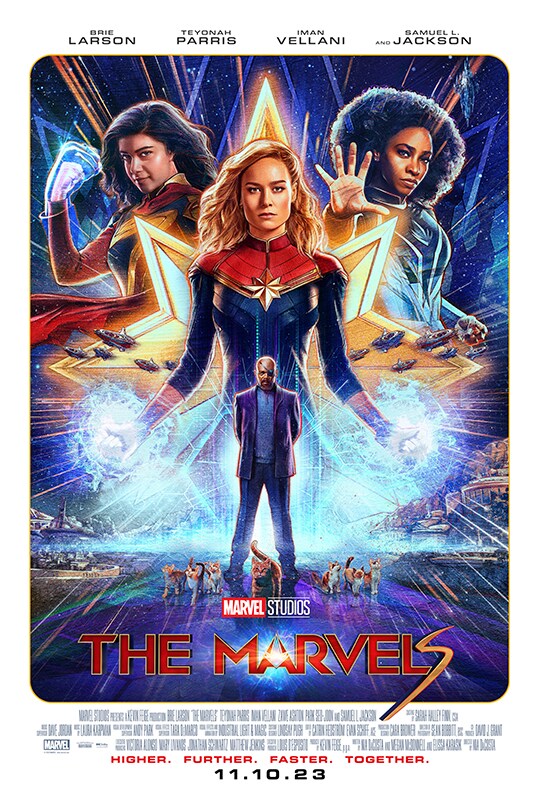
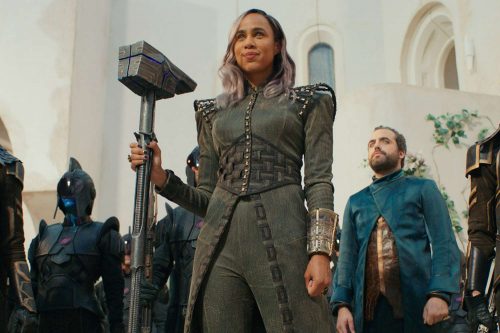
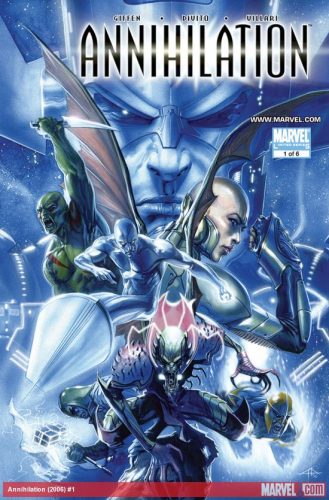
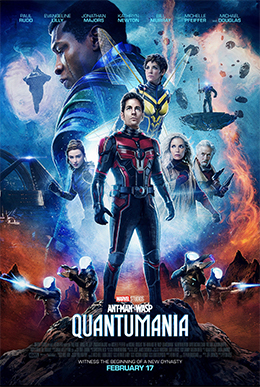
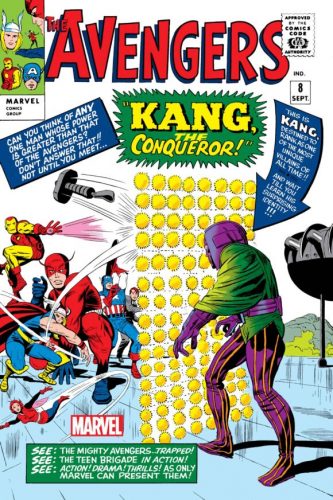
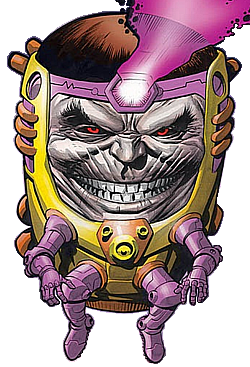
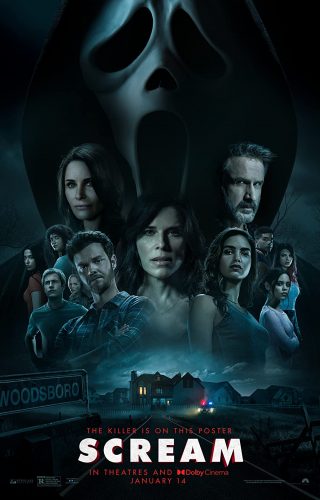
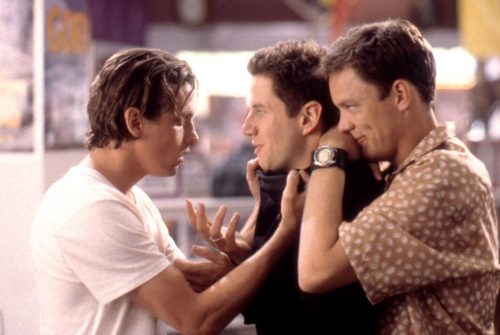
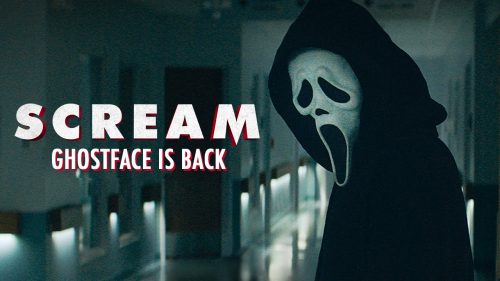

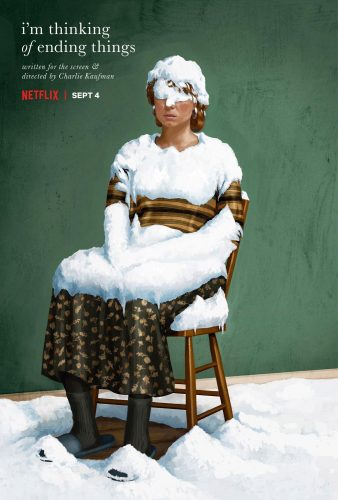
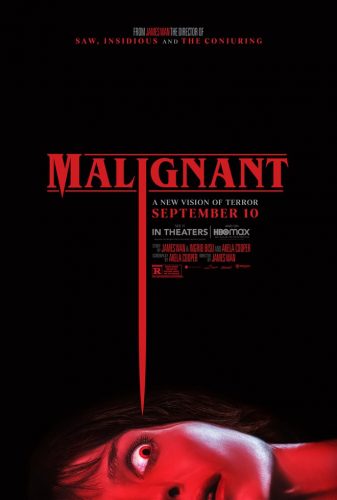
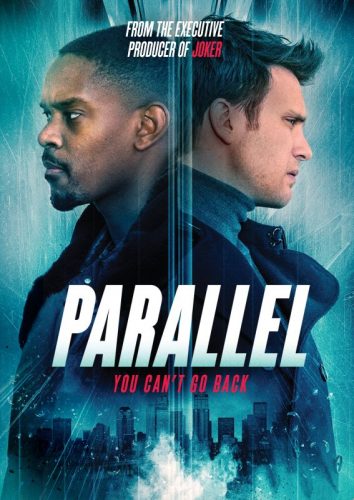
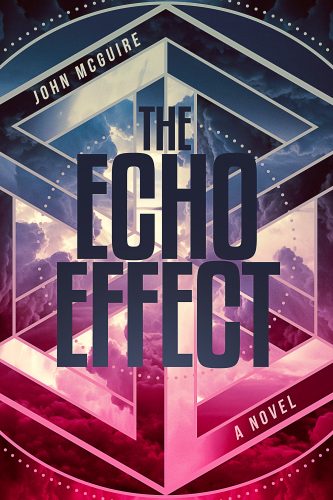
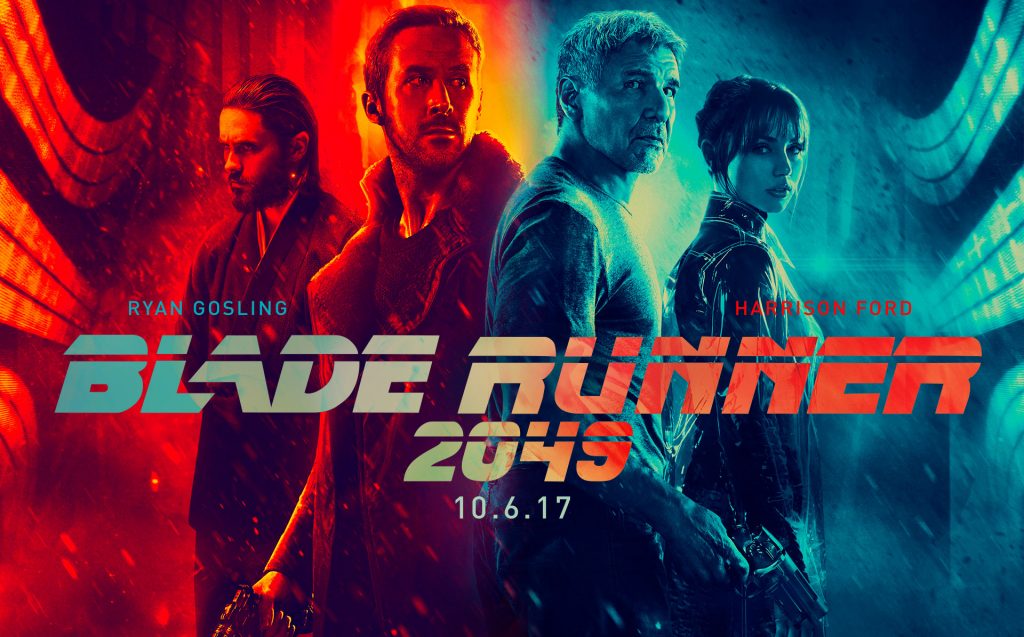
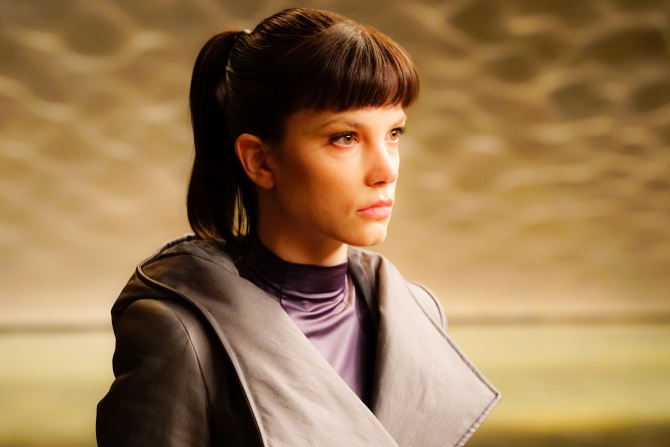

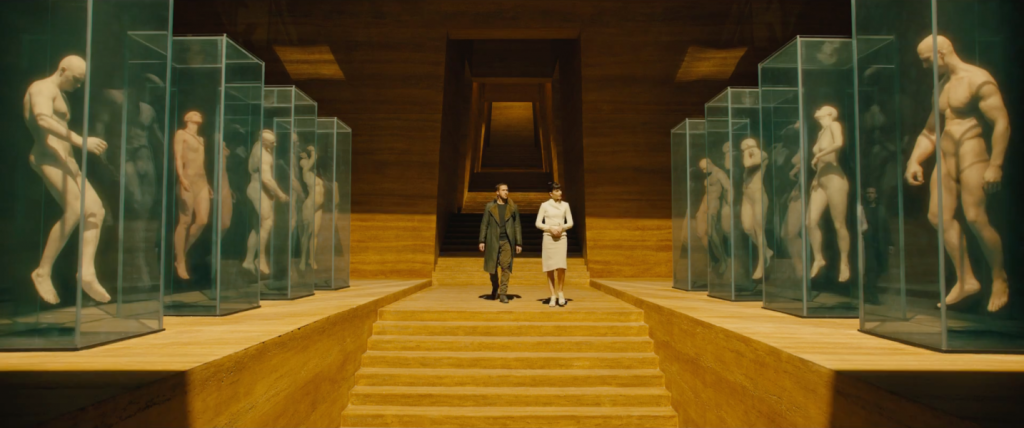
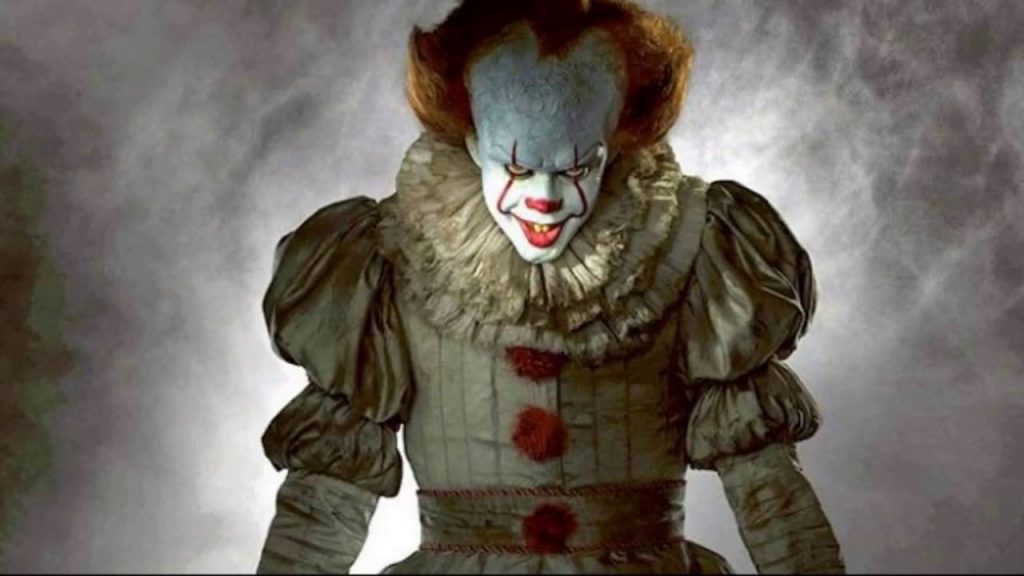
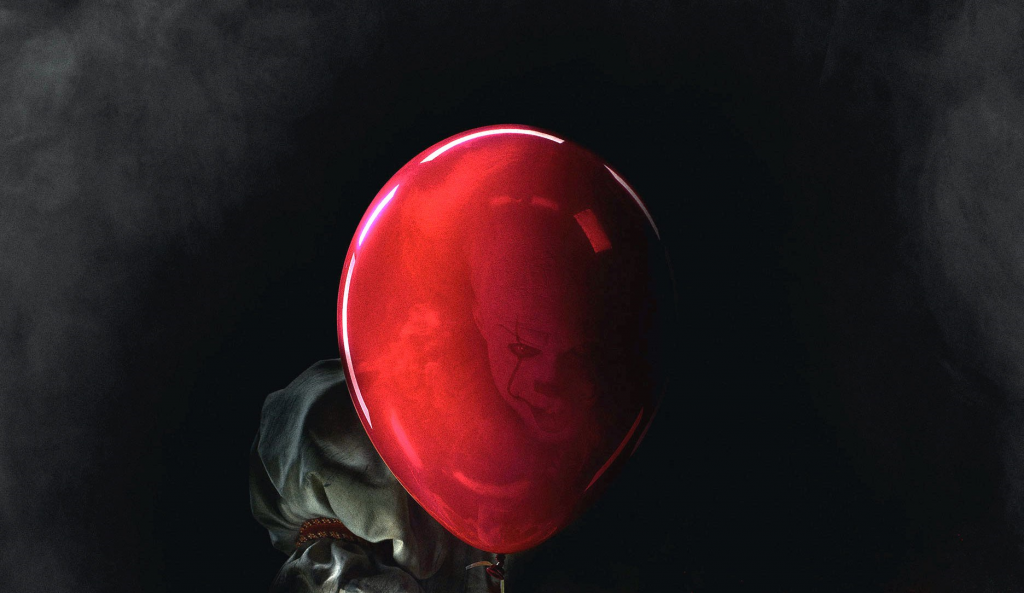
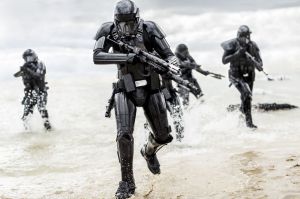
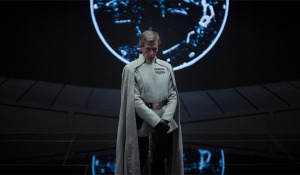
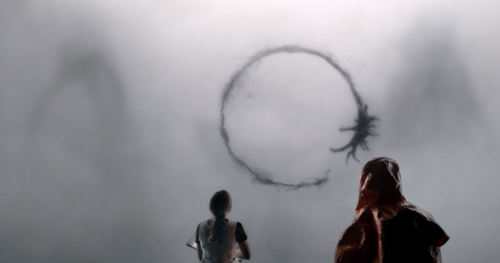
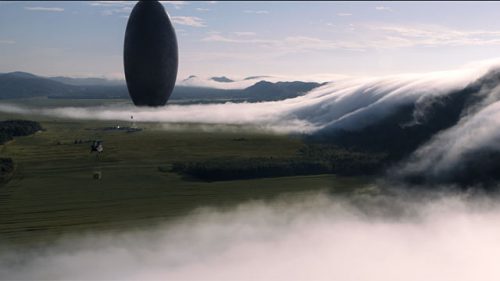
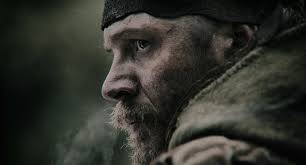
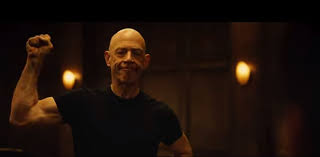 Disclaimer: This review is largely spoiler-free
Disclaimer: This review is largely spoiler-free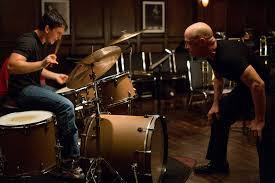
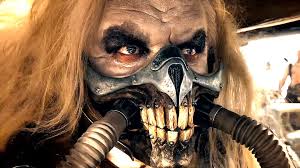

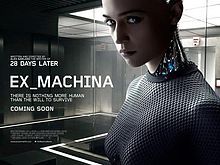





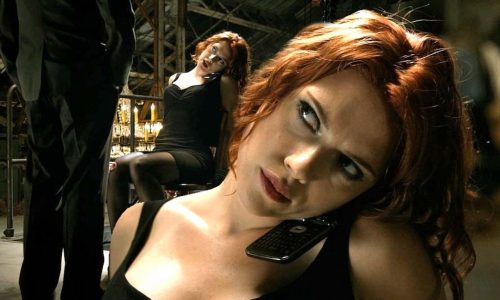
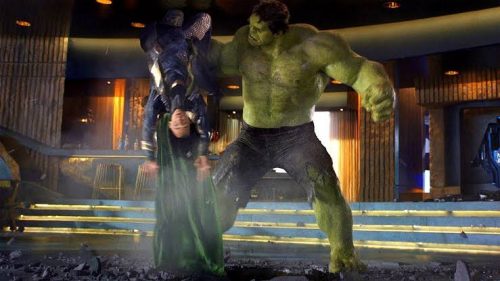
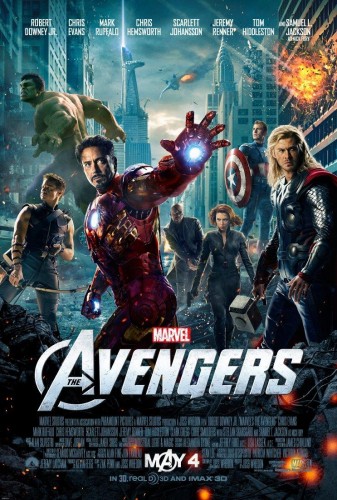
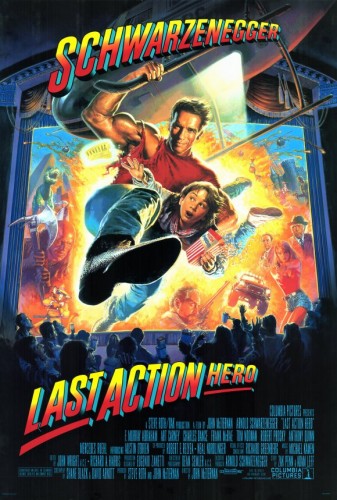
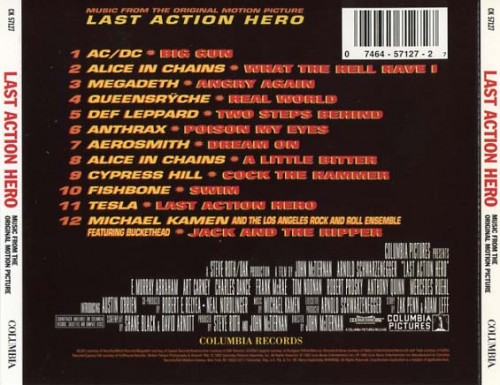


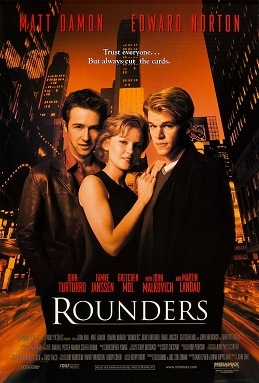
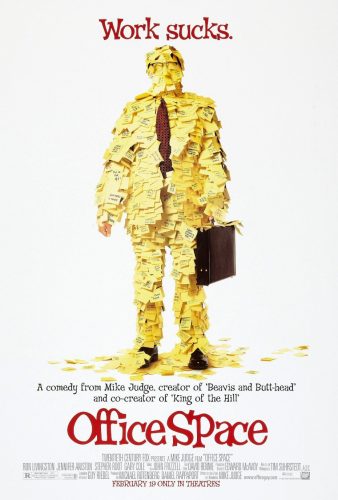
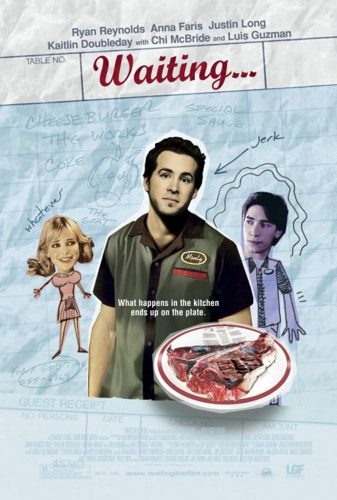
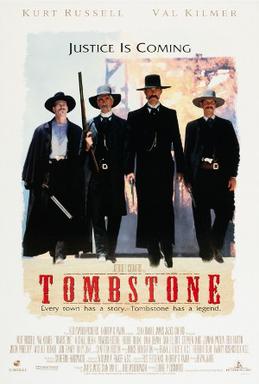
 This past weekend I conned my wife into watching a Time Loop movie. Now, I normally have to qualify this in a way because she isn’t a fan of Groundhog Day. This in and of itself is beyond blasphemous, but I think it is because she hasn’t actually sat down to watch the movie. Oh, she thinks she’s watched it, but even then she claimed that she fell asleep during it, woke up in the middle, and then felt like nothing had changed. Like there were portions of the movie she missed, but because of the Time Loop, she really didn’t need to watch it at all.
This past weekend I conned my wife into watching a Time Loop movie. Now, I normally have to qualify this in a way because she isn’t a fan of Groundhog Day. This in and of itself is beyond blasphemous, but I think it is because she hasn’t actually sat down to watch the movie. Oh, she thinks she’s watched it, but even then she claimed that she fell asleep during it, woke up in the middle, and then felt like nothing had changed. Like there were portions of the movie she missed, but because of the Time Loop, she really didn’t need to watch it at all.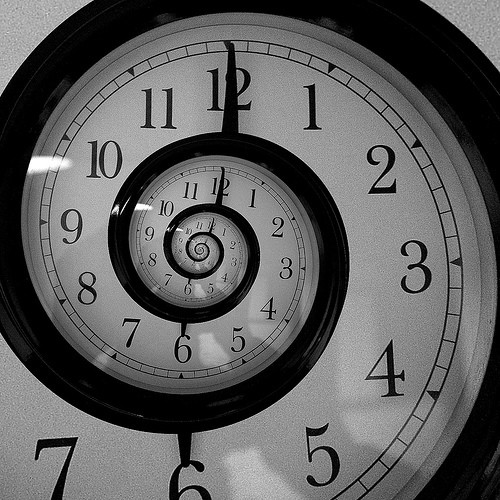

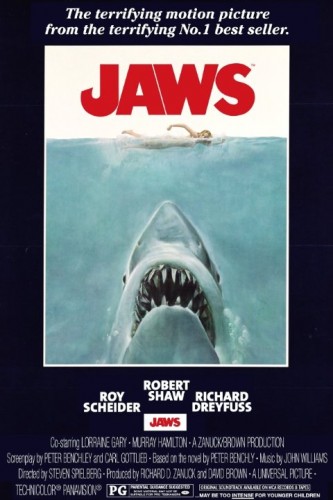
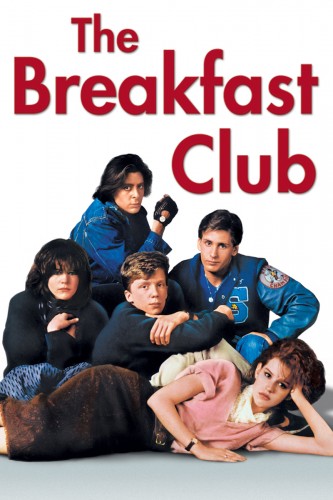
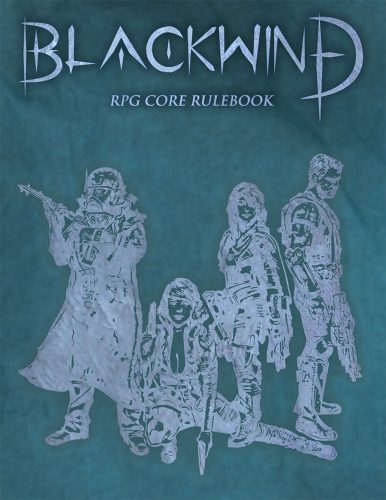
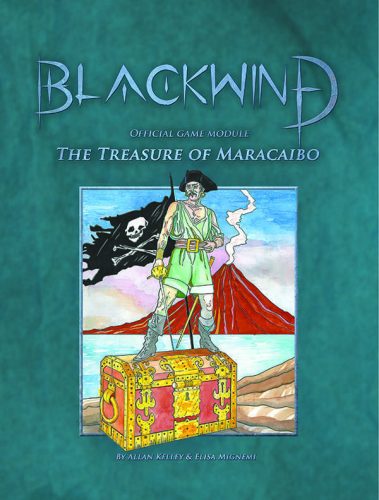
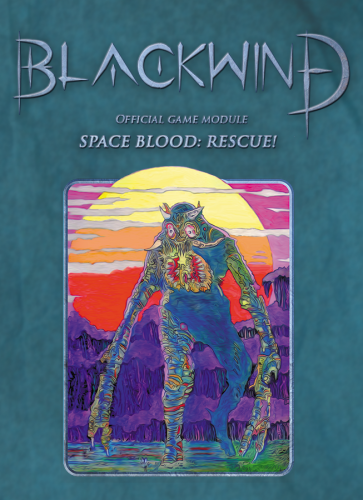
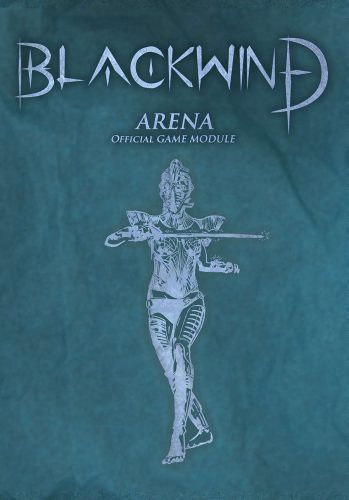





 March 6th, 2019– Justice Velocity, the action movie inspired tabletop roleplaying game is officially live on Kickstarter. Inspired by pulpy action films like the Fast & Furious franchise, Bad Boys, and more, Justice Velocity puts you in the driver’s seat.
March 6th, 2019– Justice Velocity, the action movie inspired tabletop roleplaying game is officially live on Kickstarter. Inspired by pulpy action films like the Fast & Furious franchise, Bad Boys, and more, Justice Velocity puts you in the driver’s seat.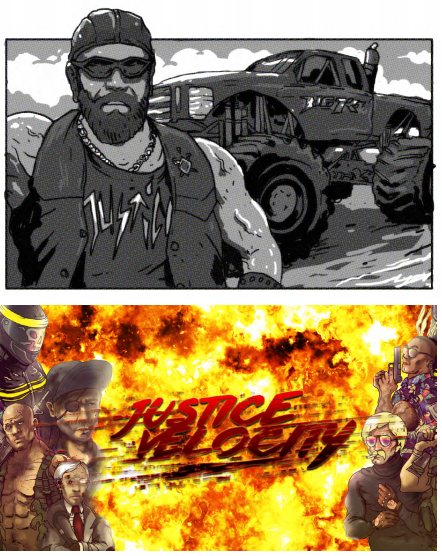 In their launch day update, Polyhedra Games announced an upcoming liveplay video from The Grizzled Geek, (as well as the possibility of some stretch goals on the horizon. You can view the campaign here –
In their launch day update, Polyhedra Games announced an upcoming liveplay video from The Grizzled Geek, (as well as the possibility of some stretch goals on the horizon. You can view the campaign here – 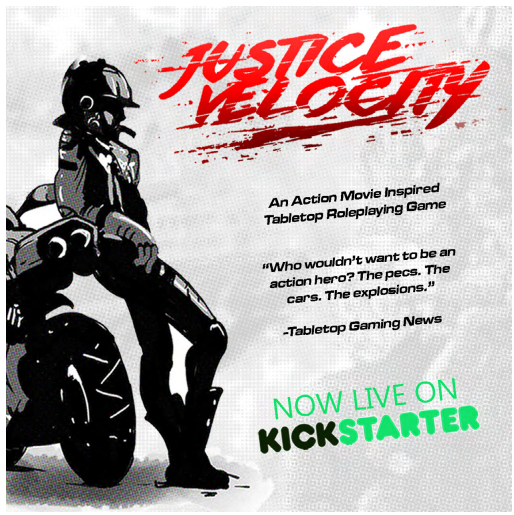 There’s something exhilarating about sending Hot Wheels™ down a track into their doom. There’s something thrilling about unnecessary explosions. There’s something amazing about seeing whether or not a car can jump over the opening of a live volcano. Justice Velocity is an unapologetic, adrenaline-fueled romp which delves into the nature of exergy and machine fetishism. It pushes physics, bodies, and systems to their limits. When justice calls, sometimes it’s the gruff, meat-headed, cargo-pants-donning voice of utilitarianism that picks up the phone. This is a foray into that universe… one in which steel, muscle, and ingenuity can prevail and save the world from certain peril.
There’s something exhilarating about sending Hot Wheels™ down a track into their doom. There’s something thrilling about unnecessary explosions. There’s something amazing about seeing whether or not a car can jump over the opening of a live volcano. Justice Velocity is an unapologetic, adrenaline-fueled romp which delves into the nature of exergy and machine fetishism. It pushes physics, bodies, and systems to their limits. When justice calls, sometimes it’s the gruff, meat-headed, cargo-pants-donning voice of utilitarianism that picks up the phone. This is a foray into that universe… one in which steel, muscle, and ingenuity can prevail and save the world from certain peril.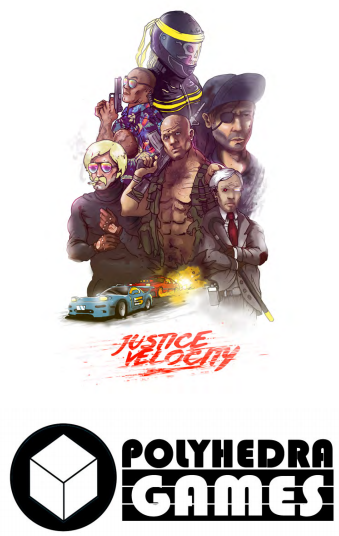
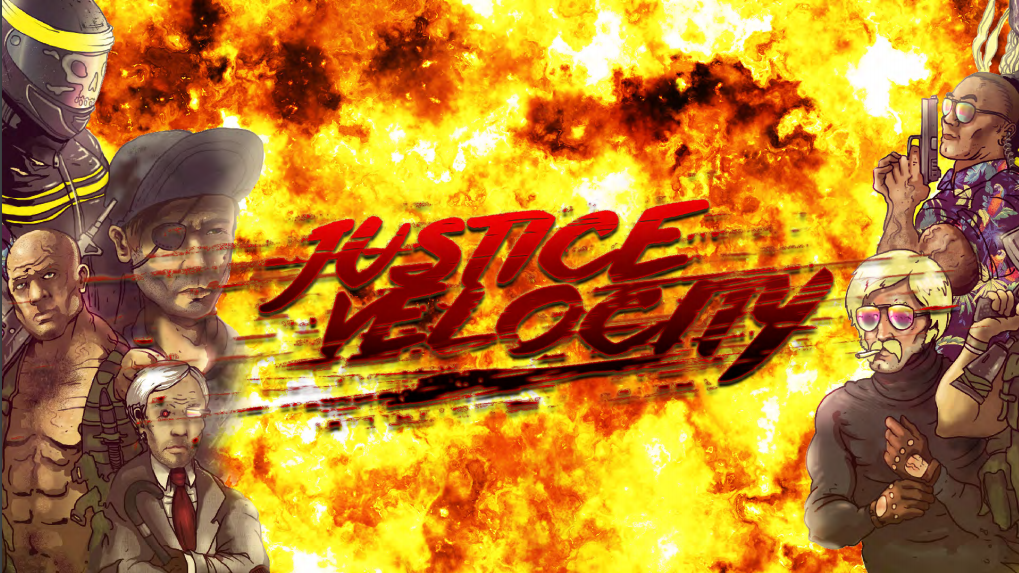
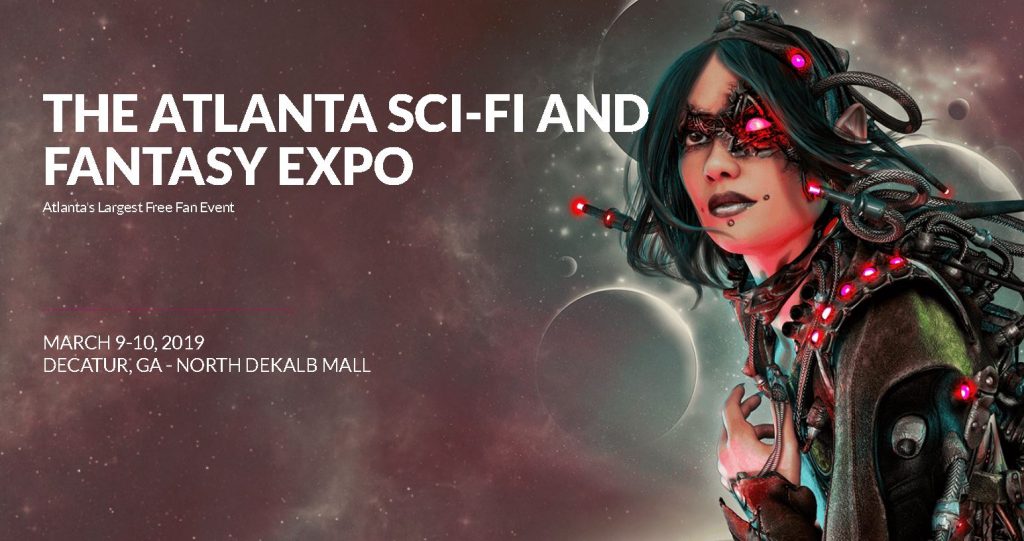
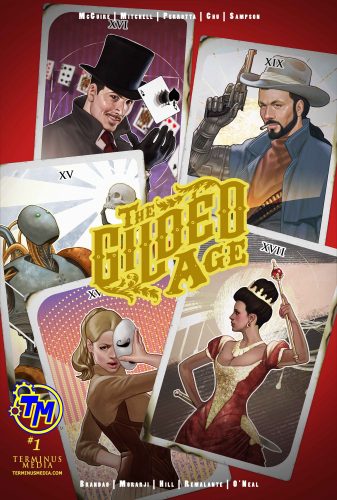

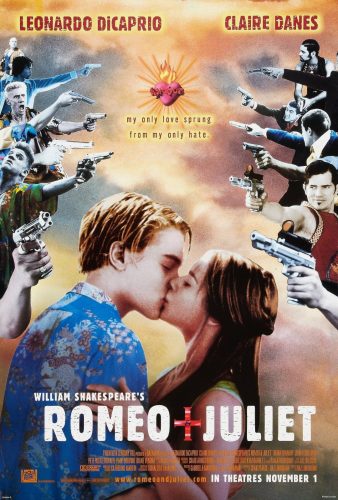


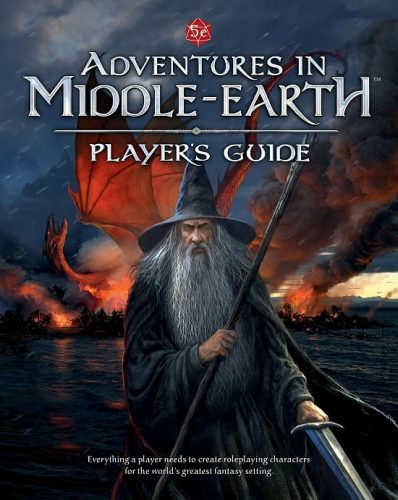 Since moving my “
Since moving my “